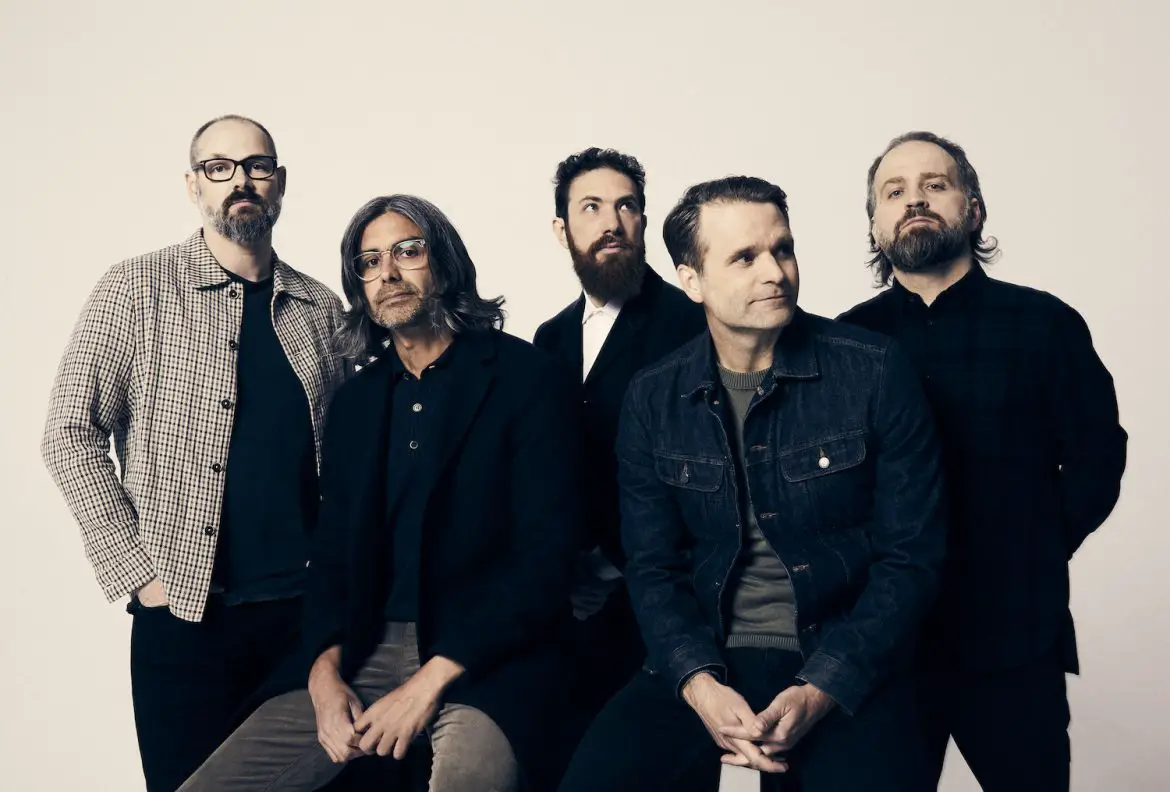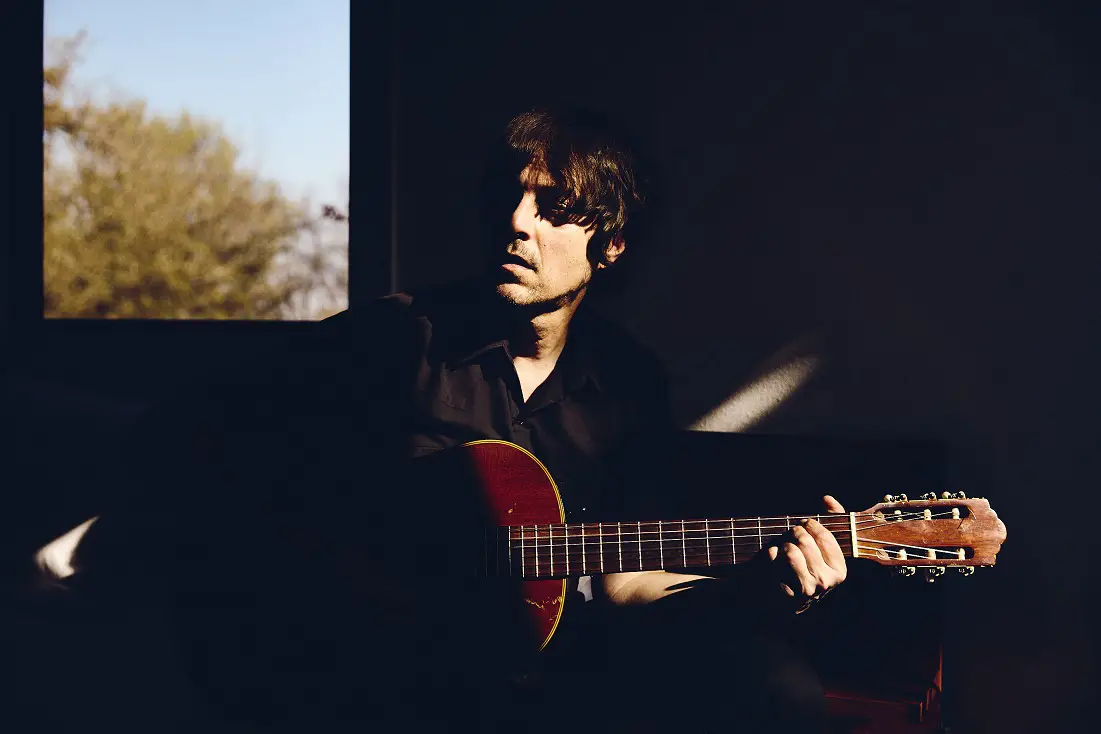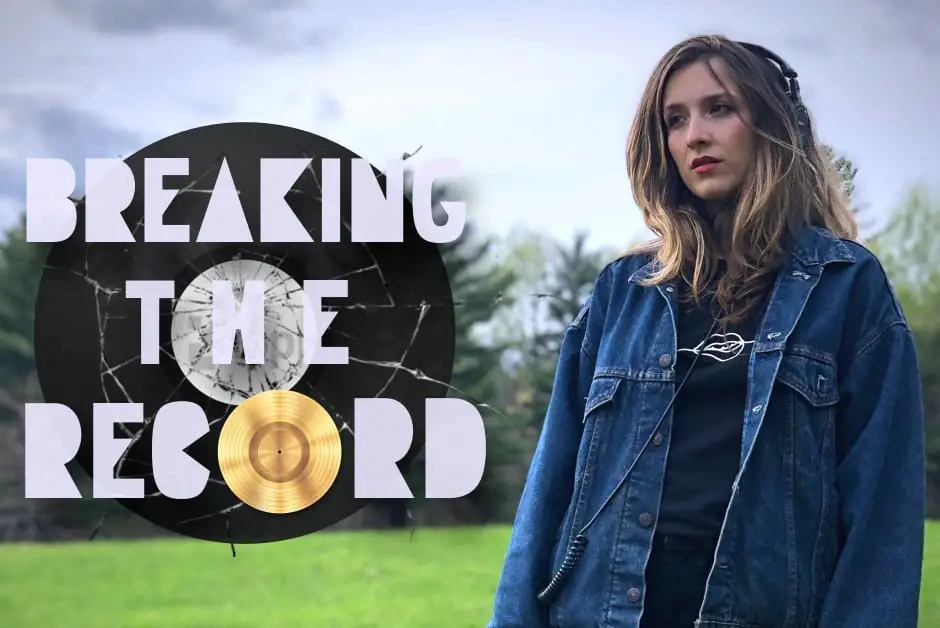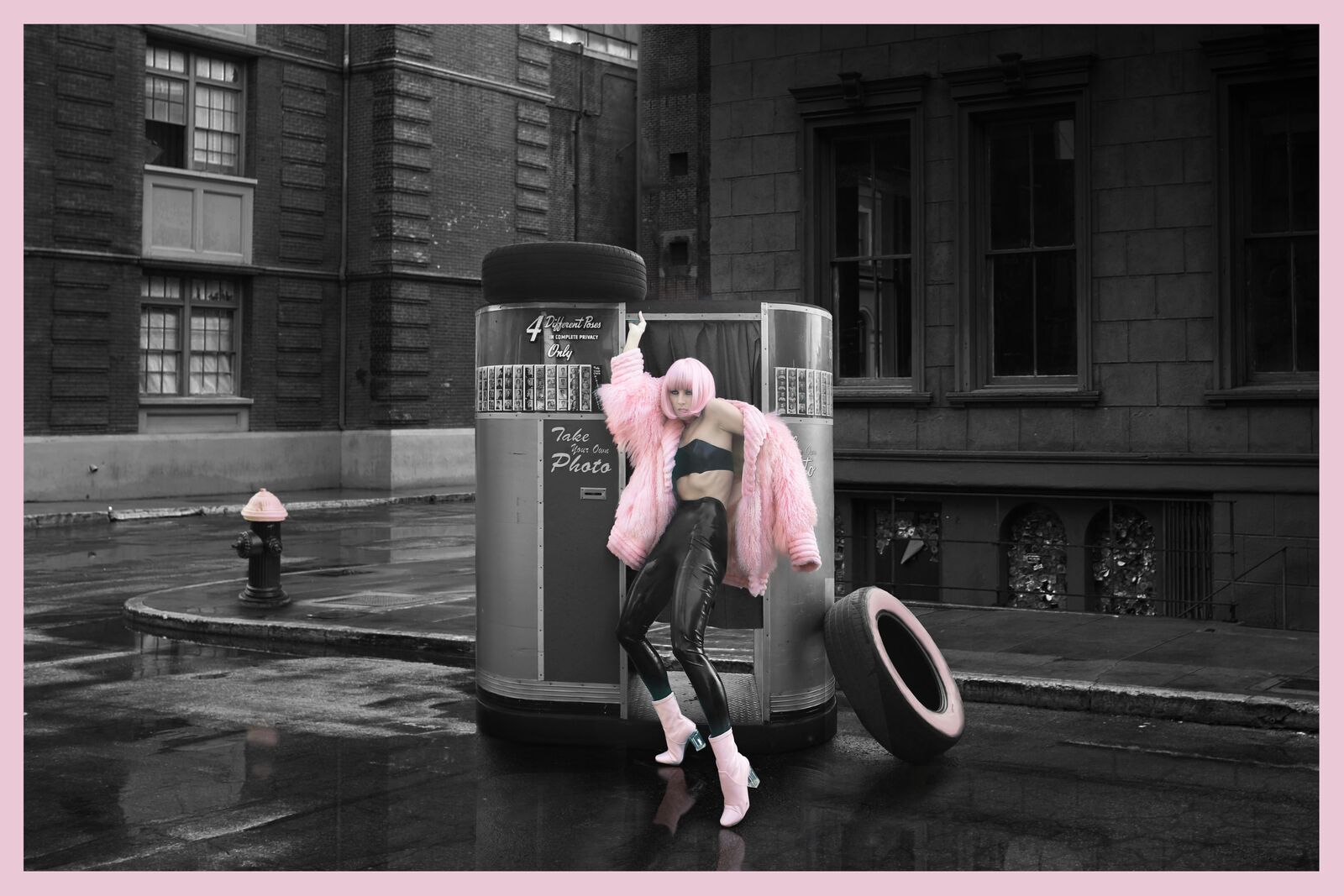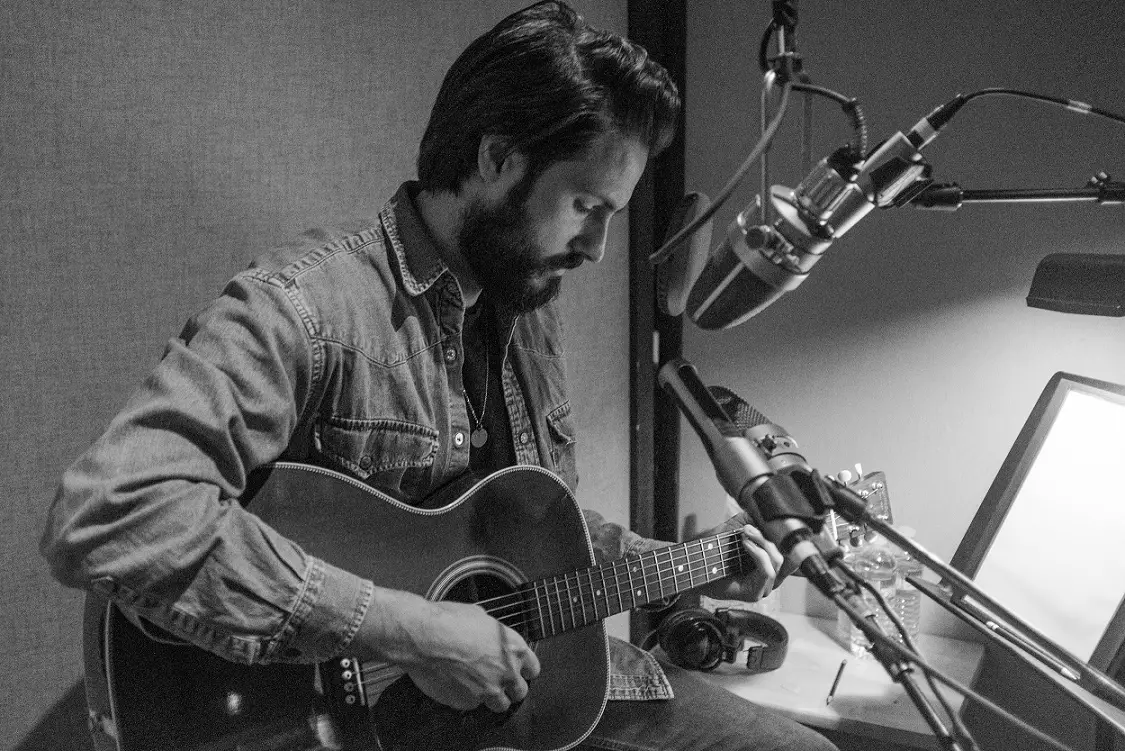Honoring their past “but not bound by it,” Death Cab for Cutie stride boldly into their 25th year with ‘Asphalt Meadows,’ a sonically and emotionally charged record radiating intimacy, nostalgia, and hope. Atwood Magazine dove into the band’s 10th LP with guitarist and keyboardist, Dave Depper.
Stream: ‘Asphalt Meadows’ – Death Cab for Cutie
The band just feels comfortable in its own skin. We’re honoring the past, but not bound by it.
Death Cab for Cutie’s band members have been put through wringer these past two and a half years, and just like the rest of us, they’ve come out the other side with a deeper appreciation for life and the little moments we can all too easily let slip away. That much is evident from the onset of the band’s tenth studio album Asphalt Meadows, a sonically and emotionally charged affair that sees the Ben Gibbard-led indie rock juggernaut at the top of their game.

Released September 16, 2022 via Atlantic Records, Asphalt Meadows is not only a special milestone in its own right, but it also marks Death Cab for Cutie’s 25th year as a band. Originally Ben Gibbard’s solo project, the Death Cab fans have long known and loved first took shape in 1997 with the addition of Chris Walla on guitar, Nick Harmer on bass, and Nathan Good (who was, a few years later, replaced by Jason McGerr) on drums. Much has changed for the outfit over these past two-plus decades, and perhaps there was no bigger shake-up than when Chris Walla left the band in 2014. This vacancy led Gibbard to bring on two of Death Cab’s then-touring members, Dave Depper and Zac Rae, as permanent parts of the band’s core line-up. Following 2018’s ninth LP Thank You for Today – their first in the wake of Walla’s exodus, and one in which Depper and Rae were still finding their feet – Asphalt Meadows sees a cool and confident five-piece Death Cab striding boldly into the 2022s with their heads held high.
“There was no real workflow figured out, even just like how polite to be, how honest to be, were all questions we had to answer during the making of that record,” guitarist and keyboardist Dave Depper says of the Thank You for Today sessions. “[Whereas with Asphalt Meadows,] it was kind of like starting totally fresh, everyone on equal footing, everyone just coming in confident and open hearted and trusting of each other. And I think that really shows in the final result… Now, the band just feels comfortable in its own skin. It feels like it’s this five-piece band, honoring the past, but not bound by it. Like, we’re just going to do what we want to do from now on, and I don’t think we’re worried about people following us where we’re gonna go. People trusted us, we haven’t let them down, and the sky is kind of the limit. There’s just a very optimistic feeling in the band right now.”
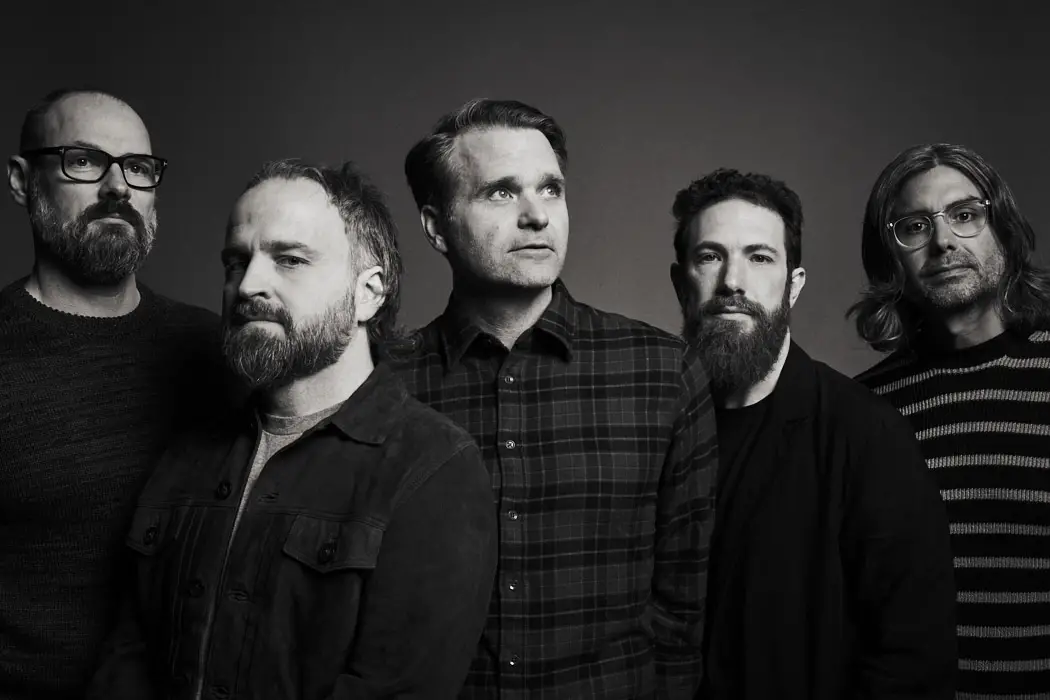
Asphalt Meadows is Death Cab for Cutie’s first effort working with Grammy Award winning producer John Congleton, whom Depper says pushed the band to take more risks and chances on this record.
“[He] had a huge effect on this record kind of expanding outward in all sorts of sonic directions,” Depper explains. “In a more abrasive direction, but also a more beautiful and weird direction. There’s a lot more impressionistic, ambient soundscapes going on. He really encouraged us to not be afraid of getting weird and not sounding like ourselves… I think his philosophy is like, ‘You guys are Death Cab for Cutie, it’s gonna sound like Death Cab for Cutie no matter what you do. So, let’s do something weird and then see how far we can push it.’ And so, all over the record, I think every song, there were at least five unsafe choices made.”
2021’s The Georgia EP notwithstanding, Asphalt Meadows is also Death Cab’s first album since the onset of the COVID-19 pandemic, and one can’t help but hear its impact on Gibbard’s songwriting. The album’s themes include survival and perseverance, reckoning with our past, present, and future, and showing up for ourselves and for those we care about the most, alongside classic Gibbardian existential ponderings on life and death (and everything in-between).
Still, it was important to Gibbard that they not write a “pandemic record.”
“He was like, ‘Everyone’s record is gonna be a f$%&ing pandemic record,'” Depper recalls. “‘I don’t need to add to this pile of, ‘I’m alone in my room’ kind of songs!’”
Depper continues, “I think [Ben] was trying to figure out a way to convey the uneasiness and angst of that moment and uncertainty about the future without putting it into blatant terms. So there’s songs where he’s talking about anxiety, the first two songs on the record. There’s nostalgic looks back at more punk rock days, like ‘Rand McNally’ and ‘I Miss Strangers,’ but they’re not just like, “Oh, things were amazing back then” or “Things were hard back then.” They’re reflections on how that has brought him to where he is now and where he’s going in the future.”
It seemed these highways were never-ending
Circling odds and evens, the numbers ascending and
Searching through static on the Wyoming plains
We danced to both kinds of music, as the old joke claims
And I wanted for nothing, I couldn’t rent
We lived on whiskey and Twizzlers, and youth’s discontent
With this Rand McNally atlas, dog-eared and frayed
Like Old Testament verses that don’t make sense in this decade
Don’t let the light fade
I won’t let the light fade
Chasing these roads into dawns
I won’t let the light fade
I won’t let the light fade
Falling asleep in their arms
If anything, the events of the past few years have helped inspire Death Cab for Cutie’s most hopeful and heartfelt record in over a decade.
“We found our way through a very dark time and have arrived with a record that is a reflection of everything we’ve done and everything still to come,” Gibbard shared upon the album’s release. “We made it.”
Like its title suggests, Asphalt Meadows is an album of friction, juxtaposition, and finding calm in a surrounding turbulence. “Listen to the ringing in your ears, the scrambled voices of your fears, whispering,” Gibbard sings at the start of the aptly-titled opener, “I Don’t Know How I Survive” – a track that, in itself, blends tender, light sonics in the verse with a caustic, abrasive chorus. “Listen to the sound of your heart beat growing louder, gaining speed. You’re breathing out, breathing in…“
From the feverish rush and unsettled churn of “Roman Candle” (“but I am learning to let go of everything i tried to hold“) to the cinematic storytelling of title track “Asphalt Meadows” and “Here to Forever,” and the poignant, visceral nostalgia coursing through standout tracks like “Pepper” and “Rand McNally,” Asphalt Meadows is one of Death Cab for Cutie’s most cathartic, disruptive, impressively cohesive, and utterly engaging albums to date. This record is nothing short of a resounding triumph: Not only is it a fitting collection to be their tenth LP, but it’s also a deserving marker of where they are today, 25 years into the game and still going stronger than ever.
Gibbard sounds like he might be aware of all this too, as he ends the album in a definitive space of dedication, devotion, and resolve: “I’ve given up on confrontation, and I’ve given up on every politician, too,” he sings. “I’ve given up on affectations and the dilettantes they all consume, but I’ll never give up on you.” Is this a love song to a special person, or is it a love song to the band to which he’s dedicated the past quarter-century of his life?
Atwood Magazine caught up with Death Cab for Cutie’s Dave Depper to discuss Asphalt Meadows, his own experience settling into the band, and hopes for Death Cab’s bright future.
Death Cab for Cutie’s Asphalt Meadows headline tour began in Wisconsin on September 22 and will conclude in Seattle in late October. The band will head back out on the road, hitting more US dates in early 2023 before embarking on a 20-date European headline tour in March 2023. For tickets and more information, visit deathcabforcutie.com!
we rode a wave of white noise
beneath the city sleeping
i saw the train doors closing
i felt your sorrow deepen
here in the asphalt meadows
there’s only one thing that grows
finding the light through the concrete
getting trampled under our feet
you said all your bridges and roads
they all lead to an airport
planes drifting off into the sky
always depart but never seem to arrive
and there in the early hour
lying naked in your unmade bed
i was thinking of how to tell you
what my ticket read
your kiss was a lonely prayer
a single candle slowly burning down
but the light, your light was beautiful
within its here and now
– “Asphalt Meadows,” Death Cab for Cutie
— —
:: stream/purchase Death Cab for Cutie here ::
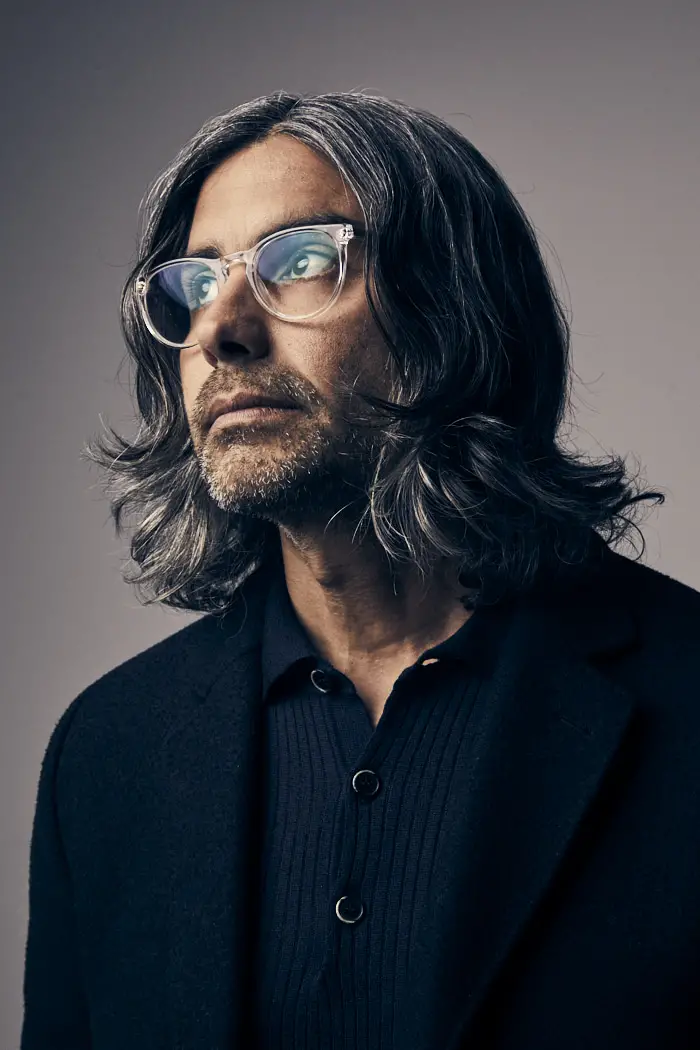
A CONVERSATION WITH DEATH CAB FOR CUTIE

Atwood Magazine: So Dave, first of all, thank you so much again for your time today, and congratulations on Asphalt Meadows’ release. This is Death Cab for Cutie's tenth album overall, and your second LP with them. What does this record mean to you in particular?
Dave Depper: Thank you! Yeah, second full length and two EPs, I think. It means a few things. It’s the culmination of a lot of group work that we did during the pandemic, that resulted in our most collaborative record we’ve done. In some ways, it feels like… Not my first true album with the band, but the first one that I felt comfortable making, like with Thank you for Today, I love that record. I think it’s great. But there was a real tentative feeling going into the studio on that one, ’cause I think the original three guys were kind of freaked out about, well, “Can we still pull this off? What’s this gonna sound like without Chris?” Zac and I did not know how we fit into the picture yet. There was no real workflow figured out, even just like how polite to be, how honest to be, were all questions we had to answer during the making of that record.
And with this one, it was kind of like starting totally fresh, everyone on equal footing, everyone just coming in confident and open hearted and trusting of each other. And I think that really shows in the final result. So the record is very, very special to me for that reason.
You've been with Death Cab for Cutie for about eight years now. What has the experience been like transitioning from a touring member into a permanent part of such a legendary indie rock band?
Dave Depper: I think last week was the eighth anniversary of my first rehearsal with them. So yeah, it’s kind of wild! The transition was pretty natural, honestly. I was friends with them before I joined the band. So, it was like, I wasn’t having to get to know these people that I didn’t know before. I was very honored and blown away by them asking me to join even as a touring member, and I would have been absolutely happy to keep doing that. It’s fun. I was fairly compensated. And in some ways, I didn’t have to do the annoying stuff that true band members had to do. But I was… Yeah, well, I was actually pretty surprised when they asked me to join full on. And once again, I was really honored.
But it was interesting, it kind of made things… It’s like I’d figured out my groove as a touring member. And in some ways, it made things more complicated again, because like I was just alluding to, going into the studio was a whole different ballgame. And before that, I’d just been playing old parts, or writing new parts to old songs and kind of embellishing, but this was like a case of, “Oh, Ben just played a new song for me that only four of us know, and what am I going to do on this thing? What is my sonic identity in this band?” And I went through a period of highs and lows of insecurity and confidence and feeling like I shouldn’t be here. These guys are fine without me. Zac’s much better at everything than me.” And in the end, though, I think through the touring of Thank You for Today feeling real ownership over… Like yeah, I was part of these songs, and they’d sound pretty different if I weren’t on them, and realizing we all just kind of settled into feeling comfortable with each other and so the transition kind of completed there. And then, since about a year after that record was done or so, we’ve just been working on new material together, like The Blue EP thing we did. And yeah, it’s felt like I just… I’ve just felt like a family member and full on member for much longer than I ever was a touring member at this point.
Well, I'm glad that impostor syndrome has gone away.
Dave Depper: I mean, it flares up now and then, but yeah, it’s… I’m managing it. [laughter]
How has your relationship with the Death Cab catalog and these songs you've known for years changed as you've become a band member, have had to learn things, inhabit them, and come to own them?
Dave Depper: That’s an interesting question I’ve never considered before. I was a total fan before I joined the band. I bought Transatlanticism the day it came out and loved ‘Plans’ and all that. And to this day, every single time we play the song “Transatlanticism,” I cannot believe I’m up there playing that guitar riff that everyone knows and I feel like the luckiest guy in the world. It is funny though, some songs are more fun or less fun or more boring or less boring to play. And I won’t name names, but it’s like some songs that I loved before, now, I’m like, “Oh my god, it’s like the 8,000th time I’ve played this thing and maybe I love it a little less.” But then some songs… It’s funny, “What Sarah Said” is a good example. That’s a song I liked on Plans it didn’t really resonate with me at the time. I hadn’t lost anyone close to me at that point. And even learning it, it’s a very simple song. I barely do anything on the song, I just kind of strum my guitar, but it’s actually my favorite moment of the set each night, because I see the effect it has on people.
Every night when that song gets played, there’s people just bawling their eyes out. And if anything, the fact that I don’t have to do much on that song allows me to really enter the song and kind of get in a trance-like state and really feel the emotion that Ben is putting out and that the crowd is giving back. And as I’ve aged and people have gone out of my life and stuff, it resonates a lot more with me as well. So, that song has really changed for me a lot, to just give you one example.
I know that you're no stranger to learning catalogs. I listened to The Ram project, which is very cool, by the way! What was one of the hardest or like most interesting experiences in terms of learning a song to then play live?
Dave Depper: Thank you! Something that is consistently challenging to me is singing backing vocals and playing guitar at the same time ’cause I am the only backing vocalist in the band, which is a huge responsibility. And a lot of band’s backing vocals are actually like octave up doubles of what he sang before. And it’s not my natural range, so I’ve had to really push myself as a vocalist. And then in a lot of cases, the guitar parts are very, especially with older songs, there’s a lot of very complicated mathy guitar parts and singing over those just does a total number on me. So I’m already singing in a range that is a little tricky for me and I’m also trying to do this almost prog rocky thing at the same time. So every time we’re learning either a new song or an old song we haven’t played before, I’m sitting at home with a metronome, going slow, singing terribly, just playing over and over. And even with the new record, I sang some of the backing vocals on the record, I played a lot of guitar parts on the record, but I didn’t record them at the same time.
And so it’s also still been a challenge. We played the song “Asphalt Meadows” for the first time last night on Kimmel, no pressure, and the guitar part I did is this very syncopated thing that’s very easy to play by itself, but then the backing vocals that Ben laid down, also not hard to do, but the timings totally clash with each other. So up until leaving my hotel room to go to Kimmel, I was sitting on this very bed, just like, “We rode a wave of white noise,” plucking away, just praying I get it. And I mostly got it, I think.
Do you feel like you have the creative leeway to do what you want within the framework of Ben's songwriting? Is it a democratic process where everyone comes together to bring their piece to the puzzle?
Dave Depper: Absolutely. It’s funny, we are a democracy the way Ben refers to it, he’s like, “Yeah, Death Cab’s like the United Nations, but I’m America.” [laughter] So, yeah, and that’s not too far from the truth, but with this record, yes, there is a conscious decision to involve everyone a lot more in the creative process, even to the point where, for the first time, we actually did an experiment where all five of us wrote our own beginnings of songs and had the rest of the band complete them. And we did that over the course of the pandemic. For like 50 weeks in a row, we did a thing where one of us would start the song on a Monday, email our start to somebody on a Tuesday, that person would email it to the next person on Wednesday, and then so on.
And Ben would get it at some point in the week and he’d write lyrics to it and sing it, and then he’d pass it on. And by the end of the week, there’d be this finished song that the person that started it on Monday wouldn’t hear until it was done. So, you’d only hear it on the day that you had it. And we generated like 50 songs this way, that were fully co-written by the whole band. And many of them are very bad and no one should ever hear them, but I think seven of them ended up on the record.
And he was fully, fully democratic. You could do anything you wanted on your day. The flip side of that coin was anyone that came after you could erase what you did. It was totally like you had full editorial control. So in that sense, there were some truly democratically written songs, but then even in the ones that… I mean, Ben came to the table with a bunch of songs that he just wrote on his own, but in the past, like on Thank You for Today, he presented us demos that had guitar, bass, drums, keyboards, backing vocals, already done and it was like, “Here’s your part.” Or like, “Feel free to come up with something better, but I’ll be the judge of if it’s better or not.” And this time, we really encouraged him to just play a guitar and sing, or just keys, and trust us to figure out the rest, and he really did for the most part. And so we also put those songs through the same process. He’d email us a demo and we’d be in our home studios and we could just add what we wanted when we wanted. And maybe it made it, maybe it didn’t, but we would at least all get the chance to sit with it without the pressure of being in a recording studio and coming up with the perfect part in 10 minutes or you’re not gonna be on the song kind of thing. So yeah, it felt like really trusting and very collaborative this time.
I can imagine for him being the face of this band for so many... I mean, two decades plus. There's a lot of pressure to own every aspect of the entire project, and he just doesn't have to. I don't wanna project into his experience, but I can imagine the weight of that being synonymous with the band and trying to, as a member, be like, “Hey, we can be a family. We can all do this together.”
Dave Depper: Yeah. I mean, he has to walk a fine line and I’m really proud of how he carries himself in that way. I mean, the buck stops with him. If the album sucks, he’s gonna be getting a lot more credit for it sucking than it not and then some. And I understand, we’re all creatives, we all have egos, we all have the way the songs should sound in our head. I’m sure all of the songs sound a little different than all of us would choose to have them sound, but it’s the fact that we all feel differently that makes them special, hopefully. And Ben’s got an amazing track record and who would blame him if he wasn’t, like, “I know how this should go. I’m successful. I’ve got a track record, just trust me.” For him to give up a little bit of that control and have a little faith in those around him to elevate things a little bit higher than they would’ve been, I think is really commendable and I’m thankful to be in a band that is led by a guy that feels that way.
It sounds like he remains the principal lyricist, but you all share songwriting credits to some degree on this record.
Dave Depper: Yeah, he writes all the lyrics. He’ll never share that. I wouldn’t wanna write lyrics for this band! But yeah, like a lot of shared credits on this record, a few songs that are just… Gibbard jams on his own, and I think it’s a nice balance of both.

How have you seen Death Cab evolve over the years you've been in the band? And how is this group now different than the one you came into eight years ago?
Dave Depper: Kind of in line with what I was saying earlier. It’s like, when I first hooked up with them, they were… I mean, I don’t think it’s any secret to say they were very shaken by Chris leaving, as they should have been. He was a pivotal member, he produced the records, he co-founded the band, like, yeah, how do you carry on after something like that? And I think it was a bit traumatic for them. And I think Zac and I were able to… It’s funny, it’s like, there was initially this sort of obligation to feel like we were filling the hole, and I don’t feel that sense at all anymore. But at the time, it’s like… I think those guys were very shaken and needed comfort and consistency and dependability. And there was just kind of a sense of like, “We got to keep this train on the tracks, let’s make a good record. Let’s not try anything crazy. Let’s make something that’s comforting for everyone.”
And we were pleasantly surprised when people still came to the shows and people weren’t burning pictures of me and Zac or anything. And now, the band just feels comfortable in its own skin. It feels like it’s like this five-piece band, it is what it is, honoring the past, but not bound by it. Like, we’re just going to do what we want to do from now on, and I don’t think we’re worried about people following us where we’re gonna go. It’s like, people trusted us, we haven’t let them down, I don’t think, and the sky is kind of the limit. There’s just a very optimistic feeling in the band right now.
When a band is around for this long, you have eras with different members in them who contribute different things to them. Just because you weren't there at the start doesn't mean you can't make an impact, and you'll be a part of that legacy, You said you were already friendly with the band earlier. Did you know Chris in particular, as well? Was it weird filling those shoes when you first joined Death Cab?
Dave Depper: I did, yeah. Yeah, I mean, that period was strange and awkward. And like, I actually haven’t spoken to Chris since then, which I regret. I’ll give you the exclusive, I regret that I haven’t spoken to Chris. I hope to, some time. I have tremendous respect for him. I guess I would feel differently if he had been fired from the band and I was usurping him or something. I mean, he wanted to leave; he wasn’t happy anymore. I have immense respect for him for doing that. It’s like, I get it, you build your life around something, your identity, obviously you’re financially very tied up in something. But to him, it was worth it to see what else was out there. And I really respect that. I think he made a clean break and he’s just decided to kind of do his own thing, and I didn’t want to disturb him at the time.
Understood. Now, diving into this music: What are the biggest differences that you see and feel between Thank You for Today and Asphalt Meadows?
Dave Depper: There’s definitely sonically a lot more chances taken on this record. I feel like Thank You for Today is a very beautiful, smooth-sounding record, and with Asphalt Meadows, there was kind of a conscious decision to shake it up a bit. And I think songs like “Roman Candles” and “I Don’t Know How I Survive” and “I Miss Strangers” just… There’s nothing that even comes close to that kind of aggression and abrasiveness on that last record. I think John Congleton had a huge effect on this record kind of expanding outward in all sorts of sonic directions. In a more abrasive direction, but also a more beautiful and weird direction. There’s a lot more impressionistic, ambient soundscapes going on. He really encouraged us to not be afraid of getting weird and not sounding like ourselves. I think Rich Costey who did the last record, he makes amazing records and that record sounds amazing, but I think he kind of has one eye and one ear on pop radio at all times, and really wanted to kind of goose the band in that direction, and did a good job of that.
Congleton really doesn’t care about that at all. I think his philosophy is like, “You guys are Death Cab for Cutie, it’s gonna sound like Death Cab for Cutie no matter what you do. So, let’s do something weird and then see how far we can push it.” And so, all over the record, I think every song, there were at least five unsafe choices made on every song, like, “We could do it this way, which will sound normal and pretty, or conventional. Let’s just get rid of this essential part of the song and do something else entirely.”
I can think of so many different areas where I heard this and thought, 'They took a risk!' It has friction, which I like; it's not a safe record. It's not easy listening, and that's okay.
Dave Depper: Oh, good! Good way to put it. It’s totally okay, yeah. [chuckle]
In first listening to this album, I felt a lot of existential questions about existence and life's meaning, cropping up to the surface. Granted, you are listening to the lyrics the same way that I'm listening to the lyrics of somebody else's point of view, can you share a little about the story behind this record? What do you see as the big themes on Asphalt Meadows?
Dave Depper: I’ll admit that I’m not the best interpreter of Ben’s intentions, lyrically. But he writes what he knows, and where we were was in the middle of a very frightening, uncertain time, but at the same time, I know that Ben didn’t wanna write a “pandemic record.” He was like, “Everyone’s record is gonna be a f$%&ing pandemic record. I don’t need to add to this pile of, ‘I’m alone in my room’ kind of songs.” So I think he was trying to figure out a way to convey the uneasiness and angst of that moment and uncertainty about the future without kind of putting it into blatant terms. So there’s songs where he’s talking about anxiety, the first two songs on the record. There’s nostalgic looks back at more punk rock days, like “Rand McNally” and “I Miss Strangers”, but they’re not just like, “oh, things were amazing back then, or things were hard back then.” They’re kind of reflections on how that has brought him to where he is now and where he’s going in the future.
Like, what I love so much about “Rand McNally” is it’s a song that’s about band touring days and the friendships that were forged in their early 20s, but the chorus is, he’s saying, “I won’t let the light fade.” He’s carrying that into the now. He’s like, “I’m gonna take that energy from then, and I’m never gonna let it go. I’m gonna channel that into everything I do from now on.” And I think that song is as much of an emotional centerpiece of the record as anything else, just kind of a look back at how we got here, looking around, realizing things are a bit f-ed, and feeling uncertain but hopeful about where we’re going.
a rand mcnally atlas, cheap coffee stained
now i wouldn’t know how to use one
with my life at stake
you were waiting on a pay phone
at a truck stop in Houston
trying to call your mother cuz she’s a worrier
a handful of twenties in your overcoat
always rolled into a pillow, on some stranger’s floor
and you tell these stories with happy endings
only when interrupted, before they’re over
but i won’t let the light fade
i won’t let the light fade
chasing these roads into dawns
i won’t let the light fade
i won’t let the light fade
falling asleep in their arms
What was the collective vision for the band sonically going into Asphalt Meadows? Did that change over the course of recording the album?
Dave Depper: Not really. It was shockingly easy, honestly. We just came in and did our thing. I don’t know. The only rule was just, don’t be afraid, and if you’ve got an idea, do it. Don’t second guess yourself. And not all of them made it, but I think on “Thank You for Today”, I showed up with parts that I was really precious about and I worked hard on, and if I played them and the band or the producer didn’t like them, I was crestfallen for the next three days. And with this, it was just like I would do something and people would be like, “I don’t know about that,” and I’d either be like, “That’s fine,” or like, “Fuck you. That’s the part. I’m doing it.” [laughter] So, whatever. It was just kind of just, be bold, be fearless, and John Congleton just completely facilitated like that. He facilitated that feeling. He was just like, “There are no bad ideas. I don’t wanna hear any whining about, ‘I don’t have a part.’ Just come up with something. This isn’t hard.” He was just so encouraging about everything.
The album's title feels like an allusion to ‘Concrete Jungle’, which has so often been used to describe big skyscraper dotted cities like New York. Why the title Asphalt Meadows?
Dave Depper: You know, I don’t know, and I haven’t asked Ben. I love the title, and I’m kind of happy that I don’t know what it means [laughter] honestly, but yeah, you’d have to ask him. It’s a lyric from the song “Asphalt Meadows,” and that’s the best I can give you.
No worries there. I have to say, I really enjoyed the heavy overdrive and the cascading guitar riffs on “Foxglove Through the Clearcut.” That song is cathartic and it feels kind of like a classic quintessential Death Cab cut in terms of just the energy released.
Dave Depper: Thank you. Love that song, yeah, that was one from the start we knew it was special right away. There was never any question of it making the record.
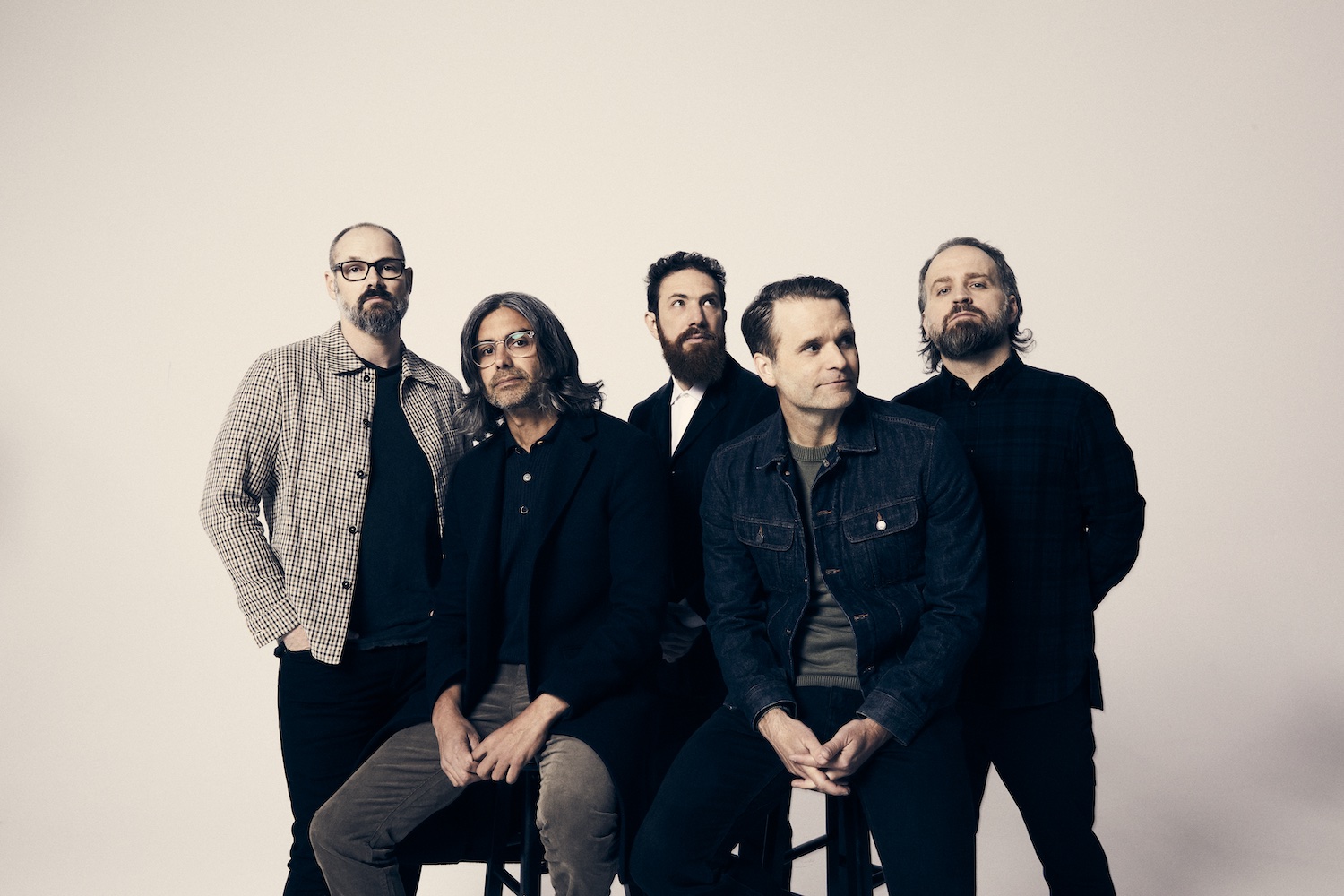
That's amazing. I want to also congratulate you with “Here to Forever” now being number one on AAA for a fifth straight week. To you, what do you attribute that song's success?
Dave Depper: In some ways, it sounds like a good old-fashioned Death Cab pop song, but I think the lyrics are very of the moment, capturing uncertainty, but sort of not being afraid, being hopeful. That clever Gibbardian way of talking about something as esoteric as watching old movies and thinking about everyone in those movies is dead. Like, who the f$%& thinks of that stuff? It’s Ben. So I think that’s the extra hook that takes it from a conventional radio pop song to something that really makes you think and resonate along with it.
Do you have any definitive favorites or personal proudest moments off this record?
Dave Depper: My favorite song by… Not by far, I love every song. My favorite song is “Rand McNally.” I knew it was special as soon as I heard it come down the pike from Ben. That was one of the ones we co-wrote during the week, and I got it second from him, and I usually don’t play the piano on the records ’cause Zac is an amazing keyboardist, so why would I? But I just heard the song and I heard the piano part instead of the guitar part, and I just came up with that whole piano line, and I’m really proud of it. It’s one of my favorite moments on the record.
You guys are about to embark on a massive tour. I know you're a very well-seasoned touring artist; what is your pre-tour routine? How do you get ready? And what do you do to get into the mindset?
Dave Depper: I meditate a lot. I run a lot. I’ve started taking voice lessons, I’ve been doing these great vocal warm-ups. I try to eat well, I try not to drink too much, the normal boring stuff, but meditation has helped me more than anything in the last few years of the pandemic, of managing anxiety and just kind of positive mental health and feeling equipped to tour again.
— —
:: stream/purchase Death Cab for Cutie here ::
— — — —

Connect to Death Cab for Cutie on
Facebook, Twitter, Instagram
Discover new music on Atwood Magazine
? © Jimmy Fontaine
:: Stream Death Cab for Cutie ::

